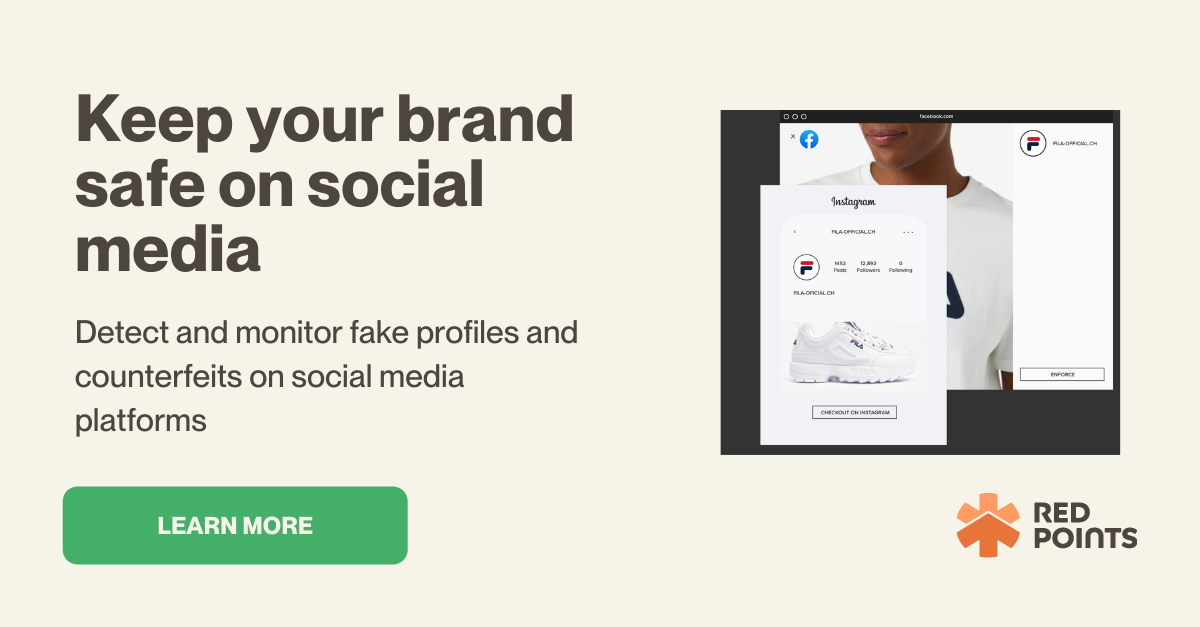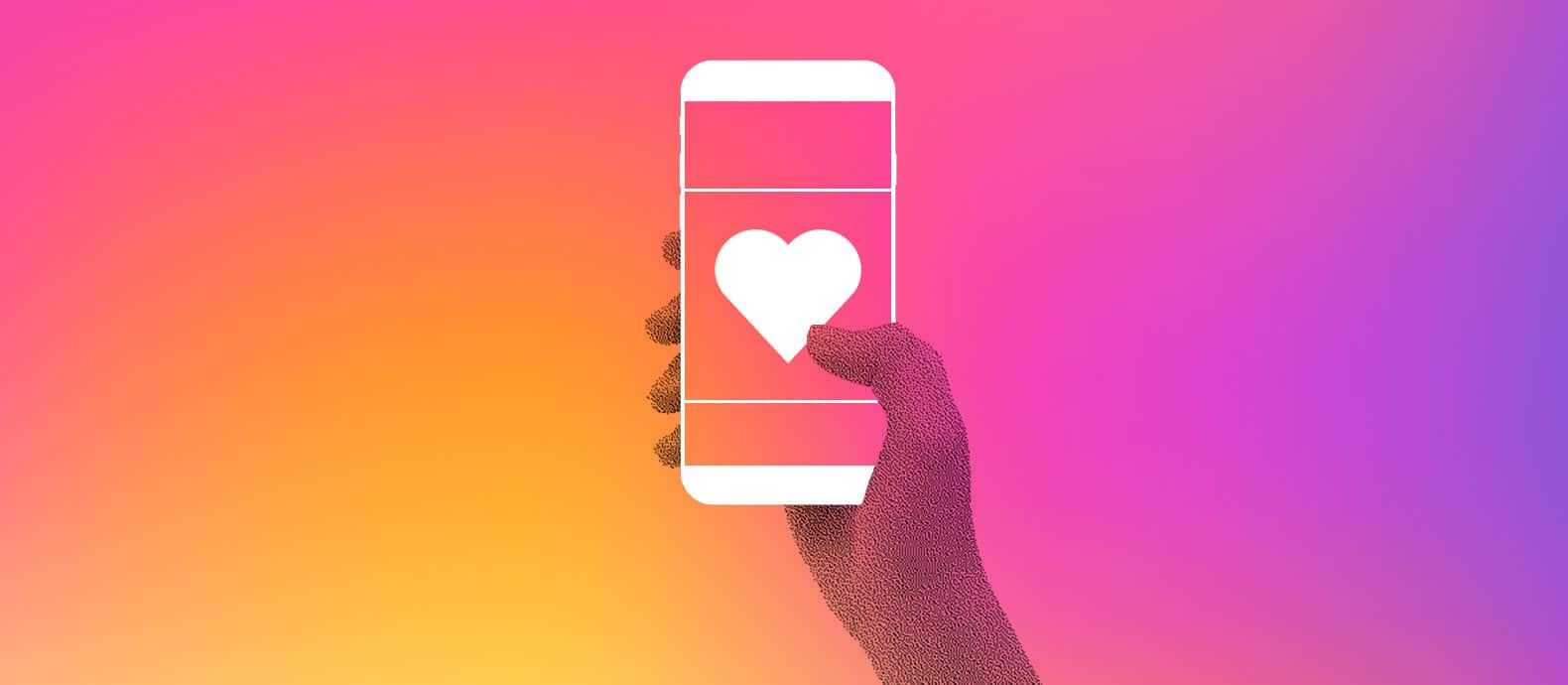The world of social media has revolutionized the way that companies promote their brand, with Tweets, Instagram stories, and Facebook posts all being utilized to advertise. However, the digital space opens your brand up to social media copyright infringement. While this is an unwelcome concept, it’s important to understand how to avoid falling victim to copyright infringement in the digital world.
Red Points is here to help you avoid copyright infringement on social media, understand when to report content that constitutes as a social media copyright infringement case, and help you protect your online content in the future.
What is copyright infringement on social media
Unsurprisingly, anything that might be considered copyright infringement in general—where work is used or distributed without the owner’s consent—is likely to be copyright infringement on social media. Twitter, Facebook, Instagram, Pinterest, and Tik Tok allow us to post nearly any content, as they cannot scan posts for copyrighted material. This opens up a whole new world of copyright infringement in the digital space.
Many see social media as a non-committal space to post anything, but it’s important for companies to be aware of the fact that copyright infringement can still occur on social media. Despite being used in the digital world, copyright infringement is still against the law and likely against the terms of service on the digital platform. If you see someone using your content without permission, you can report it.
On the other hand, if you’re utilizing content to enhance your brand image, depending on where you’ve taken your content, this could be copyright infringement. This is why for images, it’s best to use your own photos or those in the public domain. This also will protect your company from a copyright infringement case being filed against them.
What are examples of copyright infringement on social media?
It’s important to understand what constitutes social media copyright infringement to not only know when to report it, but how to avoid it as well. Unless you’ve given explicit permission for your material to be used by another party, it’s likely copyright infringement. Here are a few examples:
Your company has a helpful “how-to” guide that was written in-house for your brand’s blog. Later that week, someone spots that material being used word-for-word on Pinterest. This is a case of social media copyright infringement. Fortunately, if you’re ever in this situation, Pinterest makes it very easy to report copyright infringement.
Your company has taken an in-house photo to use on Instagram. When using Tik Tok, your photo is spotted being used in a video. While you might be wondering, is this really copyright infringement? Yes, it is. If the photo was not used with your company’s permission, this is another case of social media copyright infringement. If this is a situation you’re currently dealing with, Red Points has a helpful guide on how to report copyright infringement on Tik Tok. If this has happened to you, don’t fret—photos are one of the most common social media copyright infringement cases.
How to avoid copyright infringement on social media
It can be difficult to avoid copyright infringement on social media, with how many people use different platforms and often misunderstand the rules of social media copyright. Oftentimes, in the case of images, it’s best to use photos available in the public domain. While this isn’t ideal in every situation, it’s a great way to avoid the general headache of potential copyright infringement.
When your intellectual property is on social media, while it’s rightfully yours, it can be susceptible to copyright infringement by scammers or those who simply don’t know better. It’s not possible to stop someone from taking and using the image from the start, but if you spot it being used elsewhere, you can report it. When putting out content, you might include a copyright statement to help protect your content.
If you see your content being used without your permission, it’s important to report it as soon as you see it. Being quick to file takedown requests can help if you end up having to file a lawsuit against the offending party. However, any legal action beyond a takedown request requires having your material officially registered for copyright protection.
How to submit a copyright takedown request on social media
As the DMCA protects content providers such as social media platforms from their users committing copyright infringement, they each have a way for users to submit a social media copyright infringement case. This is often through the platform’s help center. After it’s been reviewed and confirmed to be a copyright infringement, they will usually block access to the content, although this depends on the platform.
Red Points has helpful guides for removing copyright infringement on social media such as:
Meanwhile, Instagram’s and Twitter’s forms are easy to navigate as well to help get your issue resolved as soon as possible. Twitter, however, requires that you have an account and are logged in to do so.
Before reporting a case on Facebook, Twitter, or another platform, you might check if what you believe to be copyright infringement actually falls under the social media fair use policy. Fair use usually of copyrighted material usually allows for content that is reviewing, critiquing, or parodying the material.
Conclusion
While navigating the new world of social media as a business can be daunting with threats of copyright infringement and stolen content, it’s possible to protect your content. Red Points can help streamline the process of protecting your business’s content on social media by detecting stolen content and reporting it automatically so you don’t have to. Request a demo to protect your copyright on social media.



